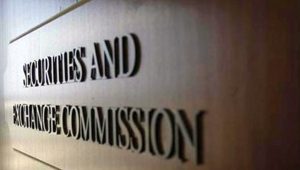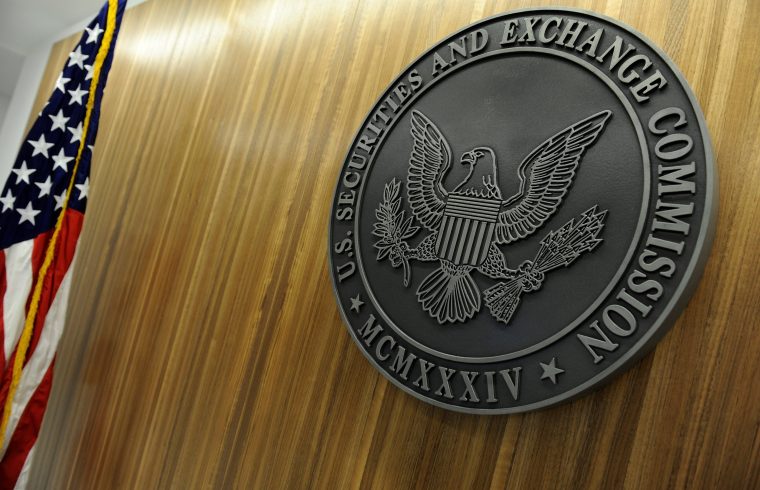
Two individuals heard their nominations for the Securities and Exchange Commission (SEC) chairs in the US Senate.
The Senate Committee on Banking, Housing, and Urban Affairs, also known as the Senate Banking Committee, held a hearing to consider the nominations of three people.
The Senate Banking Committee considered the nominations of Hester Peirce for SEC Commissioner, Caroline Crenshaw for SEC Commissioner, and Kyle Hauptman for the National Credit Union Administration Board.
Peirce has been an SEC Commissioner since 2018, while Crenshaw has been working for the SEC for the last seven years.
Both, if confirmed, will have a new five-year term.
Peirce had also previously been a staffer on the Senate Banking Committee.
While their nominations have yet to be voted on, both Peirce and Crenshaw appear safe, getting bi-partisan praise in the hearing.
“I commend Commissioner Peirce and her colleagues for their quick and decisive response to COVID 19,” state Mike Crapo, a Republican Senator from the State of Idaho.
Crapo is the Chair of the Senate Banking Committee.
Crapo continued, “Commissioner Peirce is highly qualified for her position, previously serving as a senior counsel on this committee and currently serving as an SEC Commissioner since January 2018.
Referring to Crenshaw, Crapo said, “Mrs. Crenshaw has worked at the SEC since 2013, working in the office of compliance, inspections and examinations, the Division of Investment Management, and as counsel to Commissioners Kara Stein and Robert Jackson. In addition to her work at the SEC, she is a captain in the US Army Reserve Judge Advocate Generals Corp.”
Sherrod Brown is a Democrat from the State of Ohio, and he is also the ranking member- or leader of the minority- on this committee.
“If confirmed, Ms. Peirce would continue her work as a commissioner for five more years; she brings the experience of working for the last Democratic commissioners- excuse me Ms. Crenshaw brings the experience of working for the last two Democratic commissioners, fighting for investors. Her continued service in the military allows her to bring a very different perspective to this job,” Brown said.
It was Crenshaw- working for Jackson and Stein- who worked for the last two Democratic Commissioners.
The SEC is required to have no more than three of the five commissioners be from any party to create bi-partisanship on the SEC.
While there does not seem to be much controversy over their nominations, the nomination of Hauptman may be in for a fight.
In his opening statement, Brown noted that Hauptman previously worked for Lehman Brothers as a trader when that investment bank failed.
“Mr. Hauptman was a trader at Lehman Brothers when it failed, accelerating the financial crisis. You’d think he’d understand what a financial crisis can mean, yet he’s spent his entire career railing against Dodd/Frank,” Brown said.
Brown also noted that Dodd/Frank recently celebrated its tenth anniversary.
Hauptman, in his opening written statement, noted this:
“When offered this nomination, I accepted immediately. It’s a chance to help over 120 million credit union members achieve their financial goals. And if you encounter someone who actually loves their financial institution, there’s a good chance you’re speaking to a credit union member.
“These last few months had demonstrated the cooperative nature of credit unions, as they’ve waived fees and adjusted loans without before anyone in DC told them to do so. Many of us also recall the last government shutdown when credit unions gained members by offering interest-free loans to furloughed workers. But this reputation depends on proper oversight from NCUA.
“Before the Senate, I worked on regulatory policy, including serving on a bipartisan SEC Advisory Committee. Prior to that, I was in the financial sector, focused on the same money markets where credit unions obtain financing. Twelve years ago, I was a mid-level employee working in Asia for Lehman Brothers and wound up losing my job, my savings and my work visa all due to management that didn’t fully understand the risks they were taking. That experience showed me firsthand the risks associated with liquidity, interest-rates and balance-sheet management. This perspective should be both valuable and somewhat unique on the NCUA Board.”









